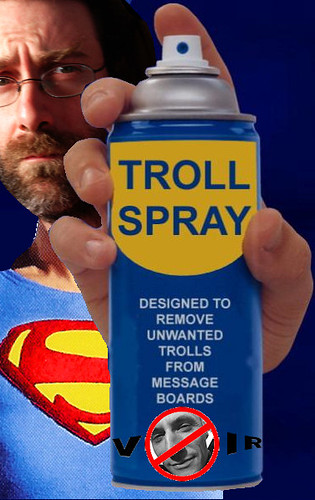monkeymath
Well-Known Member
- Joined
- Jan 18, 2019
- Messages
- 753
- Reaction score
- 951
I have a severe distaste for platitudes and there are a few in the realm of homebrewing that just trigger me every time I read/hear them. I can't be the only one with this weird OCD-esque condition, so please share the worst platitudes that just always make your day a little bit worse.
Criteria:
- it should be a platitude, not a myth or simply bad/outdated advice (like "racking to secondary" or "avoiding hot-side aeration", which actually works either way for most people),
- it should be repeated every now and then, not some obscure statement you found in a homebrew book from the 1960s that nobody bought,
- it should be oversimplified, trivial and/or plain wrong (and don't forget to explain why, please).
I'll start:
"Brewers make wort, yeast makes beer"
This phrase is often uttered to underline the importance of yeast health/quantity/whatever in beer production. It seems like it's impossible to write even five lines on fermentation of beer without repeating this platitude.
I hate it because it uses the word "to make" in a very strange way: in the natural usage, since the brewer pitches the yeast as part of the production process - with the exception of spontaneously fermented beers such as lambic -, she is absolutely making the beer. She's simply employing the yeast to make beer. Otherwise, the brewer wouldn't even be making the wort, because the enzymes are the ones "making" it. Linguistics aside, if we accept that the final product achieved by the brewer is just wort (with yeast inside) and we take that as the content of the phrase, then it doesn't have any implication whatsoever. You might as well say "Bakers make dough, the oven makes bread". Duh!
"Beer consists mostly of water, so brewers need to know water chemistry"
Whenever anyone writes anything on brewing water chemistry, this is the starting point and motivation: "beer consists mostly of water" or "water is the primary ingredient of beer" and therefore it's super important. Obvious, right?
Yes, beer is mostly H2O, but it's not actually the H2O that we care about - that molecule happens to be pretty much the same every damn time. What we do care about are the minerals and ions contained in the "water". And these minerals and ions are pretty damn scarce, to the point where they are actually the ingredients used in the smallest amounts in the beer production. So by the "significance follows quantity" logic presented by the phrase, those minerals and ions should be the least important.
Criteria:
- it should be a platitude, not a myth or simply bad/outdated advice (like "racking to secondary" or "avoiding hot-side aeration", which actually works either way for most people),
- it should be repeated every now and then, not some obscure statement you found in a homebrew book from the 1960s that nobody bought,
- it should be oversimplified, trivial and/or plain wrong (and don't forget to explain why, please).
I'll start:
"Brewers make wort, yeast makes beer"
This phrase is often uttered to underline the importance of yeast health/quantity/whatever in beer production. It seems like it's impossible to write even five lines on fermentation of beer without repeating this platitude.
I hate it because it uses the word "to make" in a very strange way: in the natural usage, since the brewer pitches the yeast as part of the production process - with the exception of spontaneously fermented beers such as lambic -, she is absolutely making the beer. She's simply employing the yeast to make beer. Otherwise, the brewer wouldn't even be making the wort, because the enzymes are the ones "making" it. Linguistics aside, if we accept that the final product achieved by the brewer is just wort (with yeast inside) and we take that as the content of the phrase, then it doesn't have any implication whatsoever. You might as well say "Bakers make dough, the oven makes bread". Duh!
"Beer consists mostly of water, so brewers need to know water chemistry"
Whenever anyone writes anything on brewing water chemistry, this is the starting point and motivation: "beer consists mostly of water" or "water is the primary ingredient of beer" and therefore it's super important. Obvious, right?
Yes, beer is mostly H2O, but it's not actually the H2O that we care about - that molecule happens to be pretty much the same every damn time. What we do care about are the minerals and ions contained in the "water". And these minerals and ions are pretty damn scarce, to the point where they are actually the ingredients used in the smallest amounts in the beer production. So by the "significance follows quantity" logic presented by the phrase, those minerals and ions should be the least important.



 Literally.
Literally.

















































![Craft A Brew - Safale S-04 Dry Yeast - Fermentis - English Ale Dry Yeast - For English and American Ales and Hard Apple Ciders - Ingredients for Home Brewing - Beer Making Supplies - [1 Pack]](https://m.media-amazon.com/images/I/41fVGNh6JfL._SL500_.jpg)













